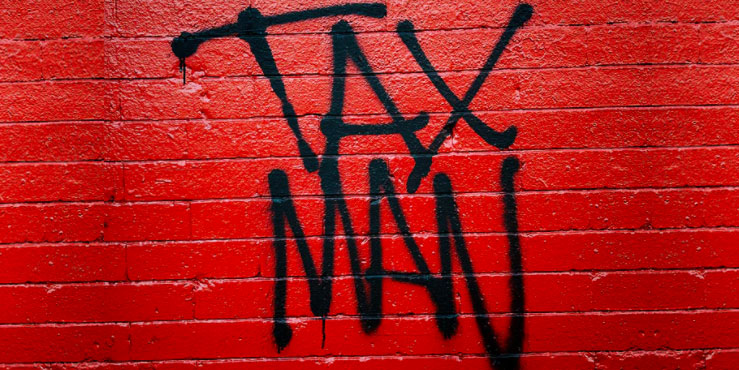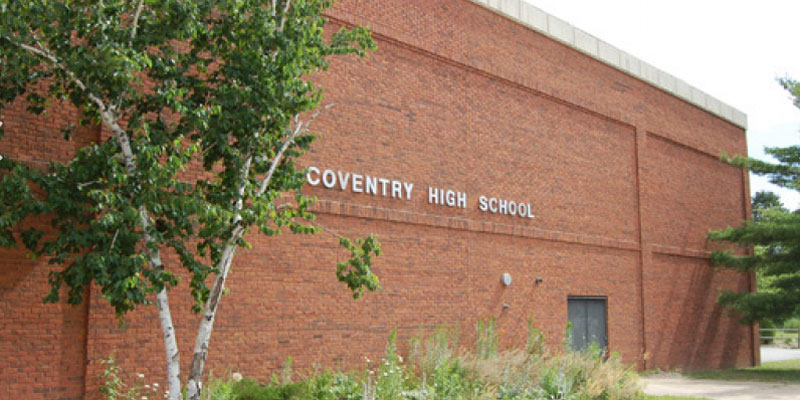For a recent episode of the Jordan Peterson Podcast, the host had a conversation with four Bitcoin enthusiasts: John Vallis, Richard James, Gigi Der, and Robert Breedlove. As befits a college professor and intellectual, Peterson leads them to cover the basics of the technology as well as to explore some of the more-profound implications of the innovation.
Even Peterson, however, gets a bit too caught up in the more-expansive questions. Toward the end of the episode, the quintet get all poetical about the ability of Bitcoin to help people offload calculations of what they value, which is a point Peterson seems to find particularly exciting. Money, after all, is just a medium for holding, carrying, and transferring value, and prices are merely a statement of that value in a particular time and place. If a government or central bank is manipulating the currency, it interferes with our ability to translate value into prices. Take that away, and we might have a mechanism to externalize our pricing.
On the surface, I think the Bitcoiners overstate how revolutionary it is. Sure, a clean window makes it easier to see what’s on the other side, while a filthy one can create illusions, but that doesn’t change the nature of what you’re doing when you look through it. The basic dynamics of the price are still there, if impurely expressed.
More profoundly, though, they display an error common among those whose libertarianism is less adulterated than mine — an eagerness to attribute to materials and mechanisms the capacity to answer immaterial and spiritual needs.
Even with the purest currency utilized in the purest of transactions between two people, part of what sets the price is internal to them. I recall overhearing a lead carpenter on the phone negotiating with a side-job client. “You sound desperate,” he said, and then he doubled his hourly rate.
More to the point, though, the price in a transaction between two people has to account for what they both value, and sometimes price and value can be inversely related. This is often relevant in arguments about how much some category of job should pay. Some of the premium that shows up in pay for men, for example, derives from their willingness to do more-strenuous, more-dangerous work; a person’s risk of harm or death has to be priced in, which means they value the work less. In contrast, activists often complain that teachers aren’t paid in proportion to their value to society, but part of that is accounting for the fact that teaching is very fulfilling, which means they value the work more and can be paid less.
The purity of Peterson’s currency won’t suddenly lead him to pay five times as much for things that people are willing to give him at cost because they made them for love of the craft or to hand over an equal sum to somebody who gives him a gift for love of the giving. Indeed, being paid for a thing changes the nature of the transaction; things inherently mean more when they are given freely.
Theoretically, we could put a monetary value on things like fulfillment at work or friendship, and if we don’t take them into account when debating the economy, we’ll wind up distorting prices even more detrimentally.* But by their nature, these calculations must remain internal to each one of us.
* What this means in practice is letting the market set the rate; the providers and the consumers balance their values.
Featured image by Icons8 Team on Unsplash.
[Open full post]Lung-function appears to be fully recovered in minors:
[Open full post]In one [study], Swedish researchers found that even asthma patients had no significant impairment in lung function.
In the other, German researchers found unimpaired lung function after kids and teens had a COVID-19 infection — unless their infection was severe.
“The COVID-19 pandemic has raised questions about if and how the lung is affected after clearance of the coronavirus infection, especially in young people from the general population with less severe disease. Until now, this has not been known,” said Dr. Ida Mogensen, a post-doctoral fellow at the Karolinska Institute, who led the Swedish study.
Something doesn’t sit quite right in this story out of North Smithfield, as reported by Lauren Clem in the Valley Breeze.
Danielle Ferguson, a parent of a high school student there, spoke at a school committee meeting in opposition to mask mandates. She suggested that the government “wants everyone to be fearful so that they can take away our rights.” Revving up a bit (which happens when people are passionate enough to speak in public meetings), she noted that “the Jews got on the bus willingly.” And so:
According to a Sept. 10 letter from a group of teachers to the North Smithfield School Committee, the Holocaust comment was reported to the Anti-Defamation League. The ADL responded by viewing a video of the meeting and expressing deep concerns about the statement.
“The comparison of mask mandates in schools to the events of the Holocaust is deeply offensive and inappropriate, and trivializes and delegitimizes the memory of victims and stories of survivors,” the ADL said.
Teachers responded by condemning both the initial comment and the lack of an immediate response by the School Committee. NSHS Special Education Department Chairperson Christine Welch presented the letter signed by 27 teachers to the School Committee on Tuesday.
To be clear, the teachers’ true target appears to be the school committee, spreading a stain on them and forcing them in line. The comments, they wrote, “should not be met by the silence of the members of the committee.” Silence is violence, you know. According to this paradigm, people in government can’t simply allow constituents to speak at public meetings, and treat them as equals with whom to debate. They must use their positions of authority to proclaim the necessary truth and publicly condemn those who depart from the progressive line.
As somebody who has sat on a town council while progressives stood up and ranted that I was a Nazi and an image of me as Hitler floated around social media, I’d suggest that the attacks on Ms. Ferguson are utterly ridiculous. The progressives and teacher unions don’t care about trivializing the Holocaust; they’re major practitioners of that act.
All they’re doing is kicking up a cloud of dirt to distract from Ferguson’s reasonable point — namely, that the victims of the Holocaust didn’t know where the oppression was going, or else they would have reacted differently. Petty tyrannies have a way of becoming not-so-petty.
Indeed, 27 government employees with authority and influence over children demanding that elected officials publicly condemn the parent of one of their charges seems like a big goose step in that direction. Further, it was shameful of the committee members to comply with the demand, particularly Peg Votta, who said, ““We tell kids when you see something, say something, and we didn’t.” As if a mildly heated statement during a public hearing was a wrongthink crime.
What Ferguson said wasn’t an outrage. If it was objectionable at all, the affront was its lack of originality and repetition of a comparison that is so common as to be cliché.
Featured image by Gustave Dore on WikiArt.
[Open full post]It seems we’re seeing increasing numbers of videos of the progressive elite being heckled by bystanders, such as this one of a pompously garbed Hillary Clinton being called a “war criminal” in Northern Ireland as a retro-garbed child carries the trail of her gown (or cape, or whatever).
Two thoughts. First: but for social media, we wouldn’t know any of this sort of thing was happening, which raises a question about how frequent this actually is as an everyday experience for this people who so richly deserve it.
Second: how long until the rotten vegetables start flying?
[Open full post]It’s hard not to see something more behind this incident:
14 soldiers with the Mexican military were apprehended by U.S. federal law enforcement officials during the early morning hours on Saturday after they crossed over onto U.S. soil, according to a report. …
“CBP said the soldiers, their weapons and equipment ‘were secured for safety and processing,’ and noted the soldiers said ‘they did not realize they had entered the U.S.,’” the Associated Press reported. “One of the Mexican soldiers ‘was assessed a civil penalty after CBP officers discovered a personal use amount of marijuana in his possession,’ according to CPB.”
I’m not sure I believe they were just out for a drive in our military vehicle and uniforms and didn’t happen to know where the border was.
Maybe. Or maybe it was a test. Whatever the case, the incident does make one wonder how much is going on that isn’t caught.
[Open full post]One has to wonder… during the Cold War, national security types talked about the “dense-pack strategy.” If you’ve got an important asset for war, like missile siloes, it may seem obvious that you want to spread them out so they can’t all be taken out at once, but you have to consider the nature of the attacks. If siloes are grouped together, then a missile that destroys one will make the surrounding area more chaotic, which means the next missile will have a harder time finding its target, and perhaps be destroyed before detonating, anyway.
In 2013, Richard Fernandez proposed this as an analog for the process by which foreign extremists were getting us accustomed to their attacks. Our outrage missiles got lost in the field of debris of so many outrages. Others, like Glenn Reynolds, applied the metaphor to the Obama administration’s practice of getting out from under one scandal by initiating another.
These ideas propose “dense-pack” from the perspective of the defender, but it can be flipped to the aggressor, too. If you (on defense) are busy watching the noise of the constant impacts, you might not see a little blip on the edge of your radar, and that may be the aggressor’s primary mission.
And so, Democrats in Congress have now said that they want to be more moderate than the crazy guy in the White House and increase the threshold at which banks would have to report your transactions to the government. Biden wants the government to know every time you deposit or withdraw more than $600, but even raising that threshold, the power-grab is outrageous.
But then… Afghanistan, the border, COVID mandates, inflation… and so on.
The thing with giving government a new view into your bank account is that it’s a fundamental, long-term change. The income tax itself shows that. Giving the government authority to tax your income opened the door for all of the ensuing mischief of social engineering, political leaks, domestic spying, and political leaks. The only reason the government has so much information about you is that it claims a need in order to verify your tax payments.
We already know from civil asset forfeiture outrages how this goes. The government will have a near-complete ledger of your significant transactions (and if you somehow have too few of them, they’ll investigate you for evading). That will be used not only to make sure they’re squeezing every penny in tax from you, but eventually to verify your statements everywhere else (when claiming unemployment benefits, for example).
And then imagine if you try to participate in the political field to push for reform. Who doesn’t have something in their bank records that could be twisted and misrepresented with a government leak as political mud? The Left wants lists of all donors to conservative causes, but this would give them lists of every financial connection of every person in the country.
So, add this effort to the long list of ways in which a razor-thin Democrat majority in the federal government is trying to leave our country unrecognizable even before the midterm elections.
Featured image by Jon Tyson on Unsplash.
[Open full post]Alexa Gagosz is reporting in the Boston Globe that an increase in “positive cases” is sending Coventry High School into remote classes through Tuesday, followed by a schedule that closes the building at 12:30 starting Thursday until further notice. (They already had Wednesday off.) Here’s the letter from the district.
Come on, folks. It’s time for parents to start being up in arms and for taxpayers to start demanding refunds for the services the schools are refusing to provide.
According to state data, Coventry is the 11th most-vaccinated municipality, at 65%. We know for certain that young people are less likely to have serious effects from COVID and that the risks to vaccinated people are extremely small. We also know for certain that everybody who attends or works in the high school is eligible for vaccination, which means that they (or their parents) are deliberately accepting the risk of remaining unvaccinated. (Exceptional cases cannot be our rule.)
We’ve reached the point that these actions are outrageous. It’s time for rational, non-superstitious people to begin insisting that fearful residents and CYA bureaucrats stop setting the standard for policy.
[Open full post]Via Instapundit, when did Matthew Yglesias become a voice of sanity? He writes:
… if all the people with degrees are on the same side of certain big moral and political questions, it’s going to be very hard for them to draw the line between actual expert knowledge and beliefs they happen to hold. Perhaps the greatest recent example of this was tons and tons of public health academics joining a sign-on letter in favor of the George Floyd protests. Note they didn’t just say something like “outdoor activity is relatively safe and we encourage everyone to do things outdoors that are important to them (church services, social justice protests, gatherings with family).” Instead, they decided to endorse the agenda of the protests. . . .
This surely did approximately nothing to actually advance anti-racism causes (who cares what public health academics have to say about this?) but a great deal to burn the credibility of public health academics in the eyes of a huge swathe of the population.
A dimension to add is that people can gain educated credentials without being well educated. For many, higher education has simply become a way to claim default authority over others.
[Open full post]On WNRI 1380 AM/95.1 FM, John DePetro and Justin Katz discuss:
- The progressive co-op cometh
- Elorza pulls the curtain back on political cynicism
- Families advocate in court for their kids
- The Licht family finds a vein
- McKee’s mandate mess
Featured image by Vladislav Babienko on Unsplash.
[Open full post]… why are they investing so much time and money in college? Stephen Green says his conversations with kids doesn’t match the global survey claim that 56% of the young are “very worried or extremely worried” about the climate. Some portion of them are probably just reacting to the tendency to answer a question in a particular way when you know which answer is “right,” even if you don’t believe it. I wonder, though, if a big part of the hysteria is more of a semantic mental trick. It’s like they’re commenting on a fiction about how the world would end in a story without consciously understanding that’s what they’re doing.
[Open full post]





